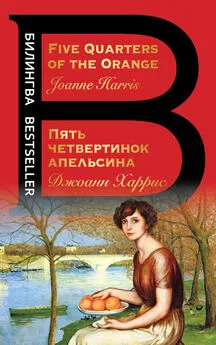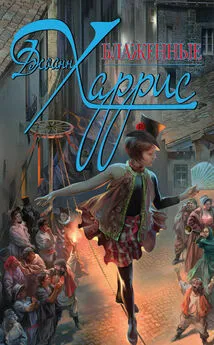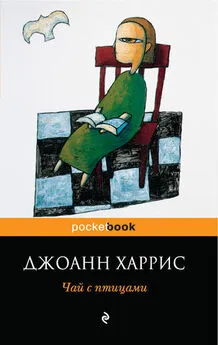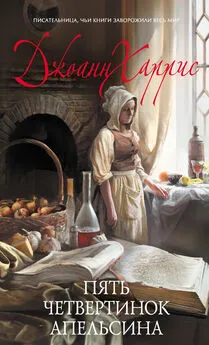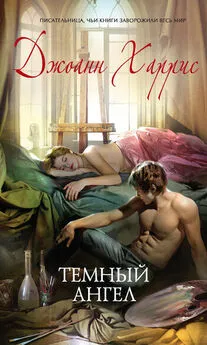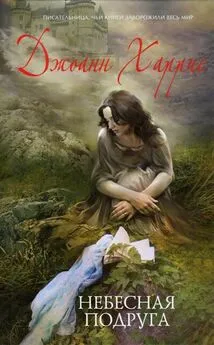Джоанн Харрис - Five Quarters of the Orange / Пять четвертинок апельсина
- Название:Five Quarters of the Orange / Пять четвертинок апельсина
- Автор:
- Жанр:
- Издательство:неизвестно
- Год:2022
- Город:Москва
- ISBN:978-5-04-163417-9
- Рейтинг:
- Избранное:Добавить в избранное
-
Отзывы:
-
Ваша оценка:
Джоанн Харрис - Five Quarters of the Orange / Пять четвертинок апельсина краткое содержание
Оригинальный текст и перевод на страницах одной книги – это эффективный способ усовершенствовать знание английского языка.
От матери в наследство Фрамбуаза получила альбом с кулинарными рецептами – негусто, если учесть, что ее брату Кассису досталась ферма, а старшей сестре Рен-Клод – винный погреб со всем содержимым. Но весь фокус в том, что на полях альбома, рядом с рецептами разных блюд и травяных снадобий, мать записывала свои мысли и признания относительно некоторых событий ее жизни – словом, вела своеобразный дневник. И в этом дневнике Фрамбуаза пытается найти ответы на мрачные загадки прошлого.
«Харрис создала многослойный сюжет, усыпанный восхитительными описаниями французских книг и раскрывающий встряхивающий эффект войны на хрупкое семейное устройство». – Publishers Weekly
«Из ее книг эта – пока самая сильная: острая, с горчинкой…» – Independent
В формате PDF A4 сохранен издательский макет.
Five Quarters of the Orange / Пять четвертинок апельсина - читать онлайн бесплатно ознакомительный отрывок
Интервал:
Закладка:
4
I had been back for almost six years when I opened the crêperie. By then I had money set aside, custom, acceptance. I had a boy working for me on the farm-a boy from Courlé, not from one of the Families-and I took on a girl to help with the service. I started with only five tables-the trick has always been to think small at first, to avoid alarming people-but eventually I had double that, plus what I could fit on the terrasse in front on fine days. I kept it simple. My menu was limited to buckwheat pancakes with a choice of fillings, plus one main dish every day and a selection of desserts. That way I could handle the cooking myself, leaving Lise to take the orders. I called the place Crêpe Framboise after the house specialty, a sweet pancake with raspberry coulis and my homemade liqueur, and I smiled a little to myself, thinking of their reaction if they could have known… Several of my regulars even came to calling the place Chez Framboise, which made me smile all the more.
It was at this point that men began to pay attention to me again. You understand, I had become quite a wealthy woman by Les Laveuses standards. I was barely fifty, after all. Plus I could cook and keep house… A number of men paid a kind of court to me, honest, good men like Gilbert Dupré and Jean-Louis Lelassiant, lazy men like Rambert Lecoz, who wanted a lifetime meal ticket. Even Paul, sweet Paul Hourias with his drooping nicotine-streaked mustache and his silences. Of course anything like that was out of the question. This was one foolishness I could never succumb to. Not that it caused me more than the occasional pang of regret; no. I had the business. I had my mother’s farm, my memories. A husband would lose me all that. There would be no way I could conceal forever my assumed identity, and though the villagers might have forgiven me my origins at first, they could not forget six years of deceit. So I refused every offer, the tentative and the bold, until I was generally held to be first inconsolable, then impregnable and then, finally, years later, too old.
I had been in Les Laveuses for almost ten years. For the last five I had invited Pistache and her family to stay during the summer holidays. I watched the children grow from curious big-eyed bundles to small brightly colored birds flying over my meadow and through my orchard on invisible wings. I have a good daughter in Pistache. Noisette (my secret favorite) is more like me; sly and rebellious, black eyes like mine and a heart full of wildness and resentment. I could have stopped her leaving-a word, a smile might have done it-but I did not; fearing, perhaps, that she would turn me into my mother. Her letters are flat and dutiful. Her marriage has ended badly. She works as a waitress in an all-night café in Montreal. She refuses my offers of money. Pistache is the woman Reinette might have been, plump and trusting, gentle with her children and fierce in their defense, soft brown hair and eyes as green as the nut from which she takes her name. Through her, through her children I have learned to relive the good parts of my childhood.
For them I learned to be a mother again, cooking pancakes and thick herb-and-apple sausages. I made jam for them from figs and green tomatoes and sour cherries and quinces. I let them play with the little brown mischievous goats and feed them crusts and pieces of carrot. We fed the hens, stroked the soft noses of the ponies, collected sorrel for the rabbits. I showed them the river and how to reach the sunny sandbanks. I warned them-with such a catch in my heart-of the dangers, the snakes, roots, eddies, quicksand, made them promise never, never to swim there. I showed them the woods beyond, the best places to find mushrooms, the ways of telling the fake chanterelle from the true, the sour bilberries growing wild under the thicket. This was the childhood my daughters should have had. Instead there was the wild coast of Côte d’Armor, where Hervé and I lived for a time, the windy beaches, pine forests, slate-roofed stone houses. I tried to be a good mother to them, really I did, but I felt there was always something missing. I realize now it was this house, this farm, these fields, the sleepy, reeking Loire of Les Laveuses. This is what I wanted for them, and I began again with my grandchildren. Indulging them, I indulged myself.
I like to think my mother might have done the same, given the chance. I imagine her as a placid grandmother, accepting my rebukes-Really, Mother, you’re going to spoil those children rotten-with an impenitent twinkle, and it does not seem as impossible as once it did. Or maybe I’m reinventing her. Maybe she really was as I remember her-a stony woman who never smiled, who watched me with that look of flat, incomprehensible hunger.
She never saw her granddaughters, never even knew they existed. I told Hervé my parents were dead, and he never questioned the lie. His father was a fisherman, his mother a little round partridge of a woman who sold the fish on the markets. I pulled them around me like a borrowed blanket, knowing that one day I would have to go back into the cold without them. A good man, Hervé, a calm man with no sharp edges in him upon which I could be cut. I loved him-not in the searing, desperate way I loved Tomas; but enough.
When he died in 1976-struck by lightning on an eel-fishing trip with his father-my grief was tinged with a feeling of inevitability, almost of relief. It had been good for a time, yes. But business-life-has to move on. I went back to Les Laveuses eighteen months later with the feeling of waking up after a long, dark sleep.
It may seem strange to you that I waited for so long before reading my mother’s album. It was my only legacy-except for the Périgord truffle-and in five years I had barely glanced at it. Of course, I knew so many of the recipes by heart that I hardly needed to read them, but even so… I had not even been present for the reading of the will. I can’t tell you on what day she died, though I can tell you where; in an old folks’ home in Vitré called La Gautraye, of stomach cancer. She’s buried there too, in the local cemetery, though I only went there once. Her grave is close to the far wall, by the refuse bins. Mirabelle DARTIGEN, it says, then some dates. I notice with little surprise that my mother lied to us about her age.
I don’t really know what prompted my first studies of her album. It was my first summer in Les Laveuses. There had been a drought, and the Loire was maybe a couple of meters lower than usual, showing ugly shrunken verges like the stump of a sick tooth. Roots straggled down into the water, bleached yellow-white by the sun, and children played among the roots on the sandbanks, paddling barefoot in the filthy brown puddles, poking with sticks at the rubbish floating from upstream. Until then I had avoided looking at the album, feeling absurdly at fault, a voyeuse, as if my mother might come in at any time and see me reading her strange secrets… Truth is, I didn’t want to know her secrets. Like walking into a room at night and hearing your parents making love: an inner voice told me it was wrong, and it took more than ten years for me to understand that the voice I heard was not my mother’s, but my own.
As I said, much of what she wrote was incomprehensible. The language-Italian-sounding, unpronounceable-in which much of the album was written was alien to me, and after a few abortive attempts to decipher it, I abandoned the attempt. The recipes were clear enough, printed in blue or violet ink, the mad scrawlings, poems, drawings, accounts between them written with no apparent logic, no order that I could discover.
Saw Guilherm Ramondin today. With his new wooden leg. He laughed at R-C staring. When she asked; didn’t it hurt? he said he was lucky. His father makes clogs. Half the work of a pair, ha ha, amp; half the chance of standing on your toes during the waltz, my pretty. I keep thinking about what it looks like inside the pinned-up trouser leg. Like an uncooked white pudding, tied up with a piece of string. Had to bite my mouth to stop myself from laughing.
The words are written, very small, above a recipe for white puddings. I found these short anecdotes disturbing, with their joyless humor.
In other places my mother speaks of her trees as if they are living people-Stayed up all night with Belle Yvonne, she was so sick with cold. And though she only ever seems to refer to her children by abbreviation-R-C, Cass and Fra – my father is never mentioned. Never. For many years I wondered why. Of course, I had no way of knowing what was written in the other sections, the secret sections. My father-what little I knew of him-might never have existed.
5
Then came the business with the article. I didn’t read it myself, you understand; it came in the kind of magazine that seems to view food simply as a style accessory-This year we’re all eating couscous, darling, it’s absolutely de rigueur – while for me food is simply food, a pleasure for the senses, a carefully constructed piece of ephemera, like fireworks, hard work sometimes, but not to be taken seriously, not art, for heaven’s sake, in one end and out the other. Anyway, there it was one day, in one of these fashion magazines. “Travels down the Loire,” or some such thing, a famous chef sampling restaurants on his way to the coast. I remember him too: a thin little man with his own salt and pepper pots wrapped in a napkin, and a notebook on his lap. He had my paëlla antillaise and the warm artichoke salad, then a piece of my mother’s kouign amann, with my own cidre bouché and a glass of liqueur framboise to finish. He asked me a lot of questions about my recipes, wanted to see my kitchen, my garden, was amazed when I showed him my cellar with its shelves of terrines and preserves and aromatic oils (walnut, rosemary, truffle) and vinegars (raspberry, lavender, sour apple), asked where I trained and seemed almost upset when the question made me laugh.
Perhaps I said too much. I was flattered, you see. Invited him to taste this and that. A slice of rillettes, another of my saucisson sec. A sip of my pear liqueur, the poiré my mother used to make in October with the windfall pears, fermenting already as they lay on the hot ground, gloved with brown wasps so that we had to use wooden tongs to pick them up… I showed him the truffle my mother had left me, carefully preserved in the oil like a fly in amber, and smiled as his eyes widened in amazement.
Have you any idea what a thing like that is worth?
Yes, I was flattered in my vanity. A little lonely too, perhaps; glad to talk to this man who knew my language, who could name the herbs in a terrine as he tasted it and who told me I was too good for this place, that it was a crime… Perhaps I dreamed a little. I should have known better.
The article came a few months later. Someone brought it to me, torn out of the magazine. A photograph of the crêperie, a couple of paragraphs.
“Visitors to Angers in search of authentic gourmet cuisine may head for the prestigious Aux Délices Dessanges. In so doing they would certainly miss one of the most exciting discoveries of my travels down the Loire…” Frantically I tried to remember whether I had told him about Yannick. “Behind the unpretentious façade of a country farmhouse a culinary miracle is at work.” A great deal of nonsense followed about “country traditions given a new lease of life by this lady’s creative genius”-impatiently, with a rising sense of panic I scanned the page for signs of the inevitable. A single mention of the name Dartigen and all my careful building work might begin to crumble…
It may seem I’m exaggerating. I’m not. The war is vividly remembered in Les Laveuses. There are people here who still don’t speak to each other. Denise Mouriac and Lucile Dupré, Jean-Marie Bonet and Colin Brassaud. Wasn’t there that business in Angers a few years ago, when an old woman was found locked in a room above a top-floor flat? Her parents had shut her there in 1945, when they found out she’d collaborated with the Germans. She was sixteen. Fifty years later they brought her out, old and mad, when her father finally died.
Читать дальшеИнтервал:
Закладка:
